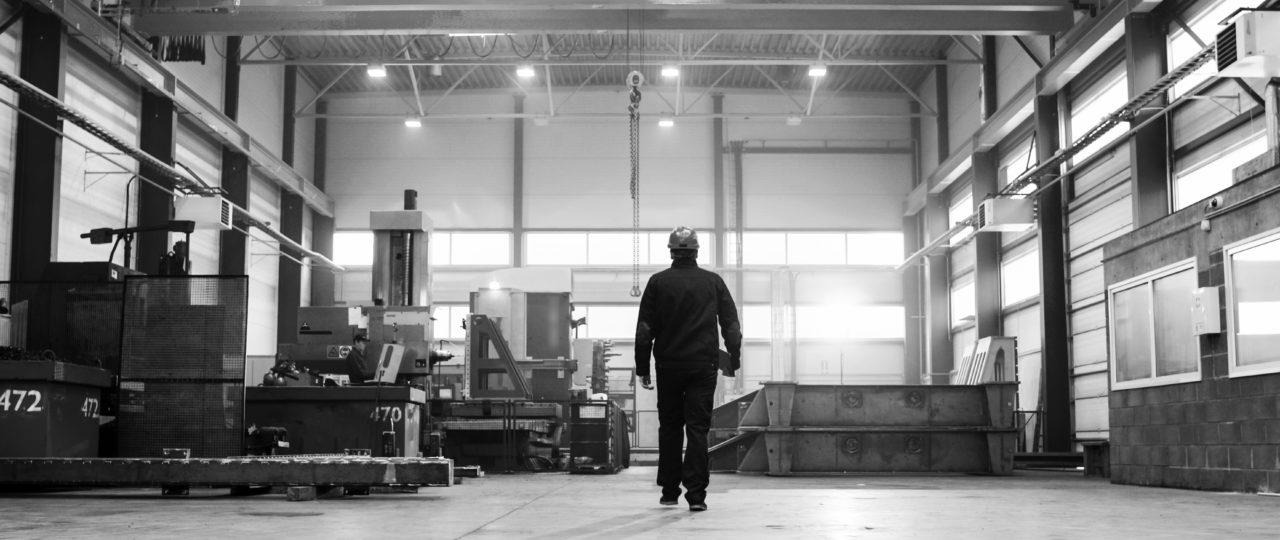
We wish it were that simple, but unfortunately it doesn’t seem like it. At least if we compare older air pollution measurements with ones made more recently. Many older measurements showed a lighter pollution or lower particle concentration, as we like to call it.
What kind of pollution is it that we are talking about? It is the contamination that originates from working with metal in a machine tool, such as a lathe or grinding machine. It’s called oil mist or oil smoke. Which one of the two it is, depends on how small and how many the particles are. How high the particle concentration that is allowed during a work day is normally determined by the National Occupational Health Authority. In Sweden, the threshold limit value for oil mist during an 8-hour work day is 1 mg / m3 and in many other European countries it is 5 mg/m3.
What influences the oil mist particle concentration? There are many components involved, but among the most important ones we would point out;
- How fast the tool, drill or grinding disc rotates in the machine (the rpm), also called spindle speed.
- How “hard” the coolant or neat oil is sprayed onto the part during machining. The coolant pressure is measured in Bar.
Oil mist can harm both productivity and health
The demand for high productivity in a fierce competitive market makes it vital for companies to produce faster and more efficiently. During the last 10 years, we at Absolent have seen a clear trend with higher coolant pressures and machine spindle speeds to cope with faster machining.
Air pollution measurements we perform today often show higher particle concentrations but also much smaller particles. The particles that are created in many machines nowadays are tiny ones, about the size of a virus. Particles that are completely invisible to the naked eye. If these manage to escape from the machine, they will stay in the air for days. Since they are so miniscule, they easily penetrate and harm vital and sensitive control systems and tool magazines, which could cause immense production problems.
This is where the filter unit comes into the picture. A filter unit that always prevents the oil mist from escaping through the machine inspection doors or other openings or hatches. A filter unit there to protect sensitive electrical equipment and the machining process itself. The most important task for the filter unit, however is to protect the machine operator and his colleagues from inhaling these small particles. Due to their small size the human body’s own filter system, such as nasal hair and flicker hair in the respiratory tract, stand no chance in protecting the body. To filter these small particles also put high demands on the filter unit. An Absolent filter, called HEPA H13, is a must to guarantee a constant high separation. But without really high-performing filtering before the HEPA, this would mean short service intervals and a costly maintenance.
Maybe you remember the diesel cars in the 70s? Back then we could often see the black exhaust cloud behind the car. Now think about today’s cars. We can’t see the pollution, but we all know it’s there … even if we can’t see it!
The oil mist and oil smoke from machining seldom makes the air appear black. It has now become the invisible pollution that probably affects us in completely different ways than the smoke and soot from the machines in the 70’s.
Important to select a filter unit that can cope with the task – also in the future.
It is essential to find out if your machine is emitting oil mist or oil smoke and how high the particle concentration is. Without that knowledge it is almost impossible to size a filter unit. It’s like selecting a car or a heavy truck for a load you intend to carry. You need to know the weight of the products you intend to carry, right? When you select a filter unit you could think of the air contamination as a “load” and you will need a filter unit that can cope with that load, day in and day out. To get a good idea of what type of filter you need, you will need to measure. We use a particle measurement device and if you don’t have one, we are more than happy to assist you. Just contact your closest Absolent office or distributor!




